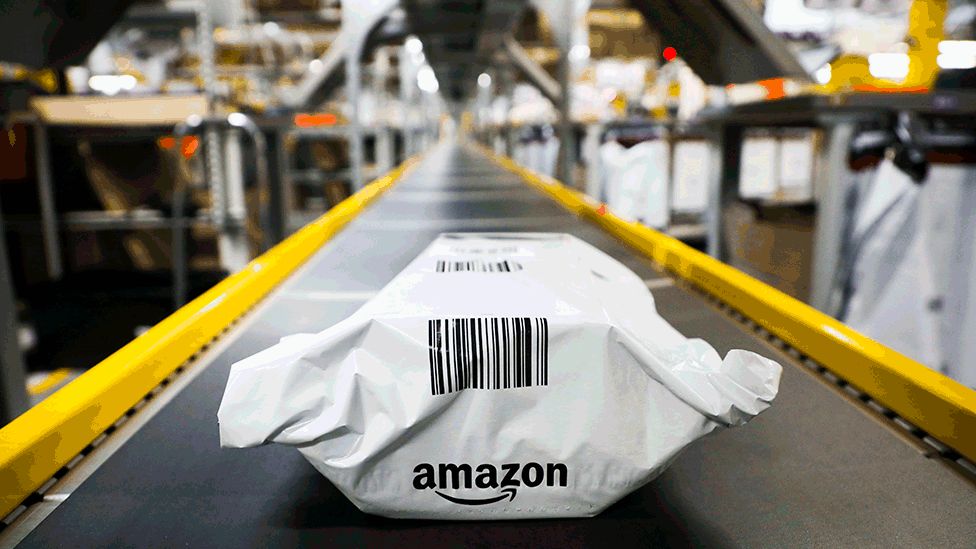
Earlier this week we learned that Amazon founder Jeff Bezos will step down as chief executive of the e-commerce giant that he started in his garage nearly 30 years ago.
He will make way for Andy Jassy, currently head of Amazon's cloud computing business, to take day-to-day control.
Billionaire Mr Bezos won't entirely give up the reins, however, instead assuming the role of executive chairman.
Today, Amazon is one of the most valuable public companies on the planet, with Mr Bezos vying with Tesla's Elon Musk for the title as world's richest man.
What started as a small online book retailer has become a global phenomenon, spanning home delivery, cloud computing, advances in artificial intelligence, and the streaming of movies and sports.
And that has brought Amazon much criticism, ranging from accusations it has contributed to the decline of the High Street to complaints about working conditions in its vast warehouses.
So how has the Amazon empire been built?

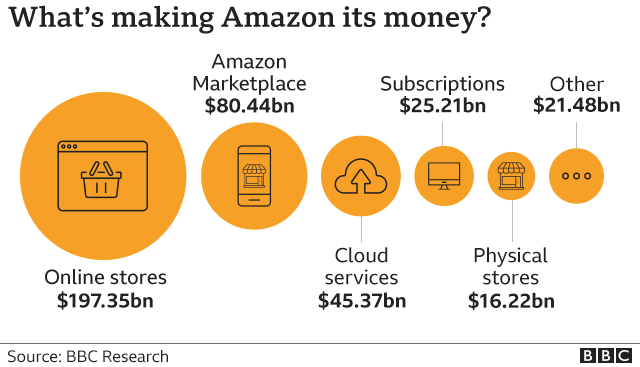
Amazon's innovation can be clearly seen in its financial results.
In 2018, it became the world's second-ever public company to be valued at $1 trillion, after Apple, and today it has the third-highest market valuation in US, after Apple and Microsoft.
The huge success of the online giant is also evident in its revenue.
Sales for 2020 reached $386bn, up from $280bn a year earlier. Net profit almost doubled to $21bn.
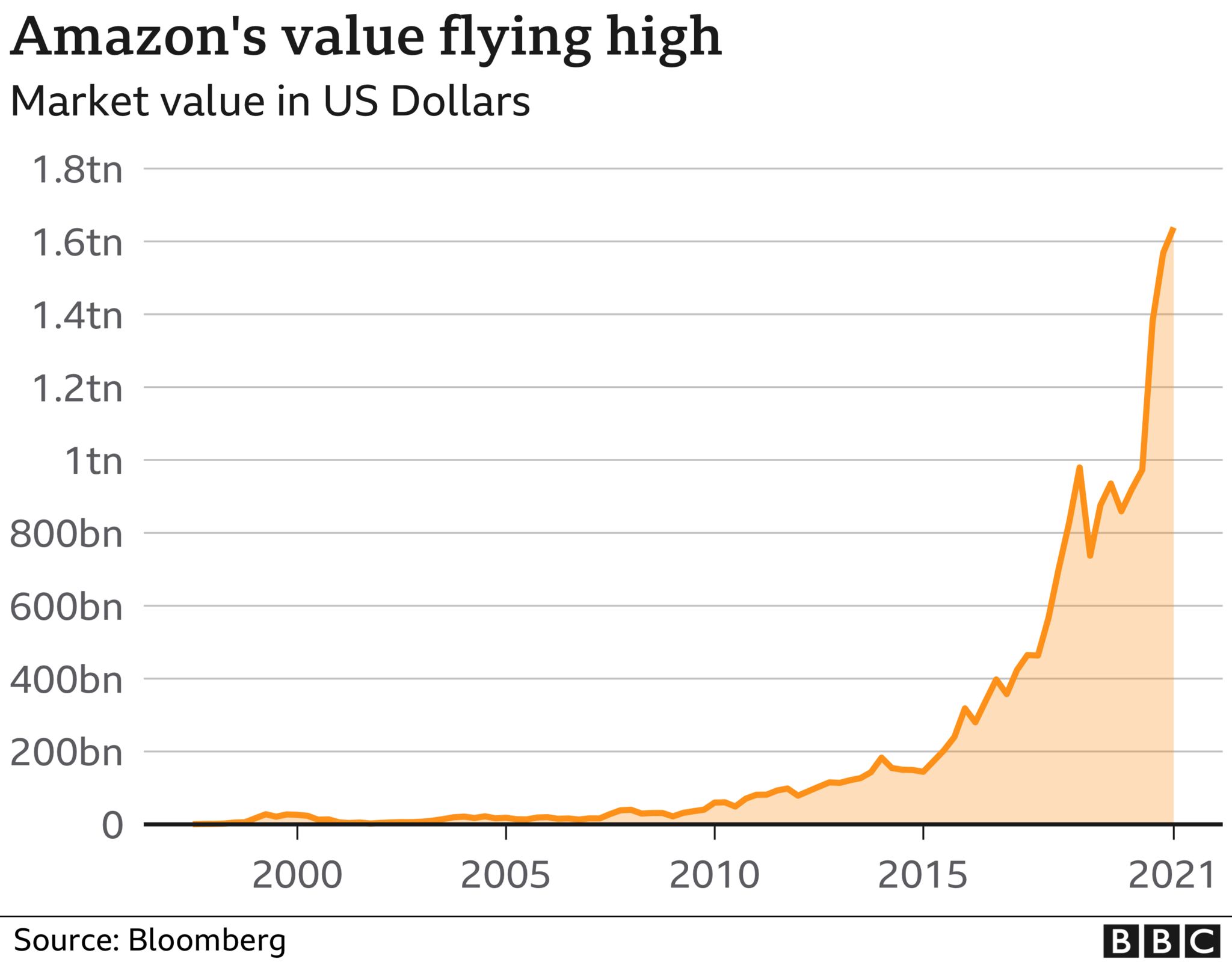
Mr Bezos's success has been driven by the firm's global expansion, but mainly by expanding into a wide variety of other sectors.
Video streaming services and devices, cloud services and most recently groceries (with the acquisition of Whole Foods Market) have allowed the company to compete directly with technology giants such as Facebook, Apple, Google and Netflix.
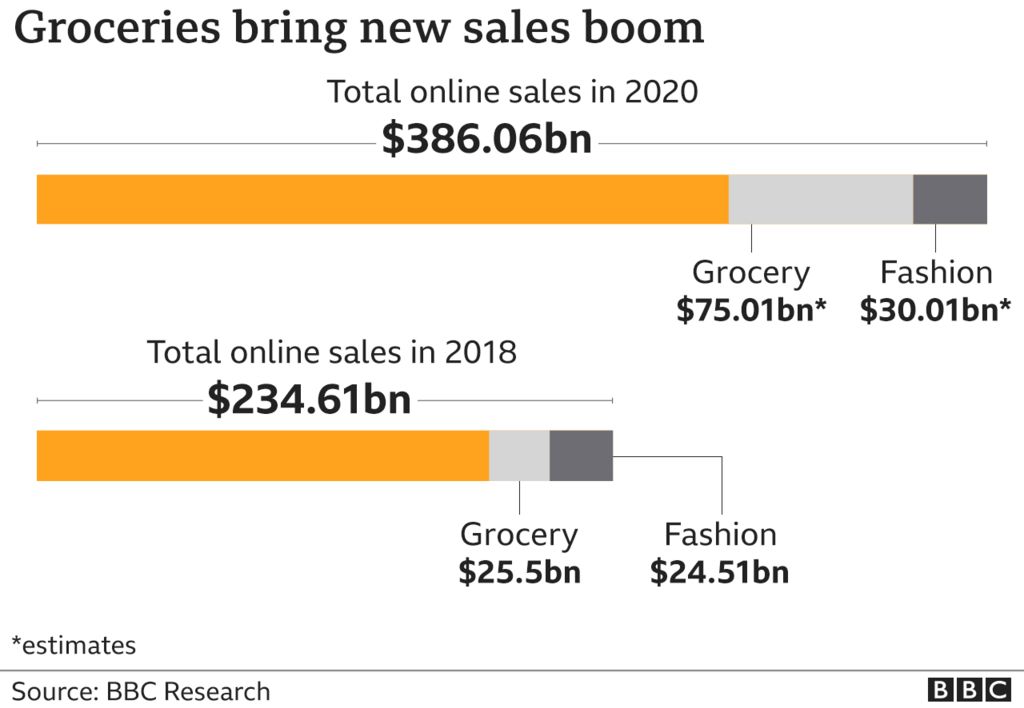
And it all began with selling books.
1995: Amazon launches with online book sales
"When we first started selling books four years ago, everybody said, 'Look, you're just computer guys and you don't know anything about selling books.' And that was true," said a young Jeff Bezos in 1999.
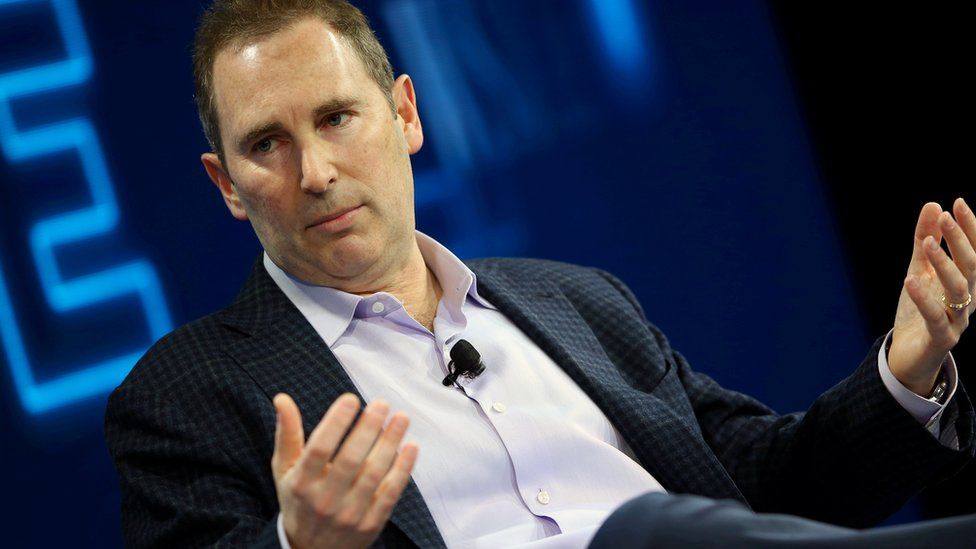
However, the huge stockpiling space that the company had at the time in the US helped Amazon become a leader in the sector and enabled it to offer a wider selection of books than its bricks-and-mortar rivals.
Then ebooks arrived and Amazon was smart enough to become a key player in that market too.
1999 - Amazon becomes the biggest online sales platform in the world
In the late 1990s, Amazon decided to start selling other goods, starting with music and DVDs.
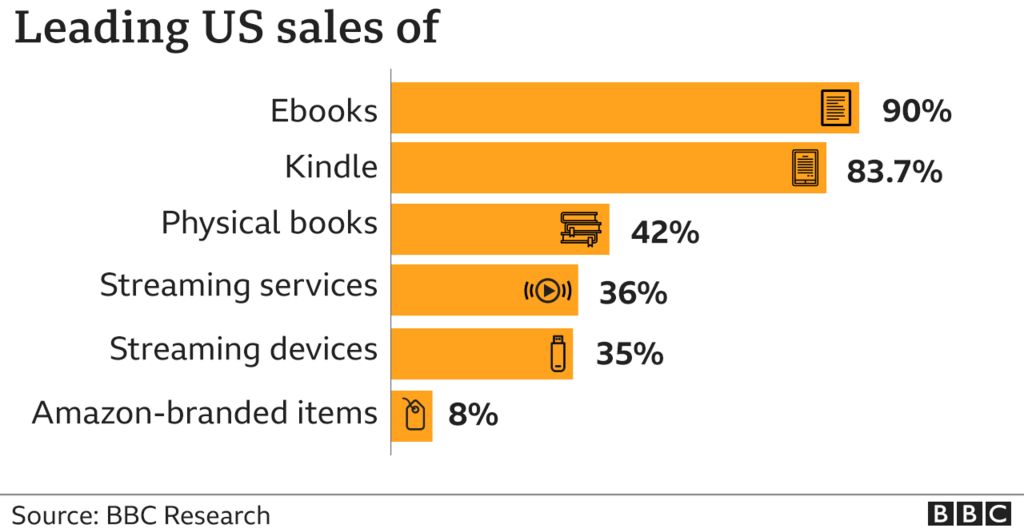
Soon, Mr Bezos's empire grew to include electronics, toys and kitchen utensils.
The growing network of US warehouses helped extend what the company could offer, dramatically increasing its popularity with customers.
Ten years later, Amazon had become the biggest online seller in the US and around the world.
2005 - Amazon launches Prime membership
Following the creation of Amazon Marketplace in 2000 - which opened the platform up to thousands of small businesses - Amazon felt the need to boost its delivery service for loyal customers.
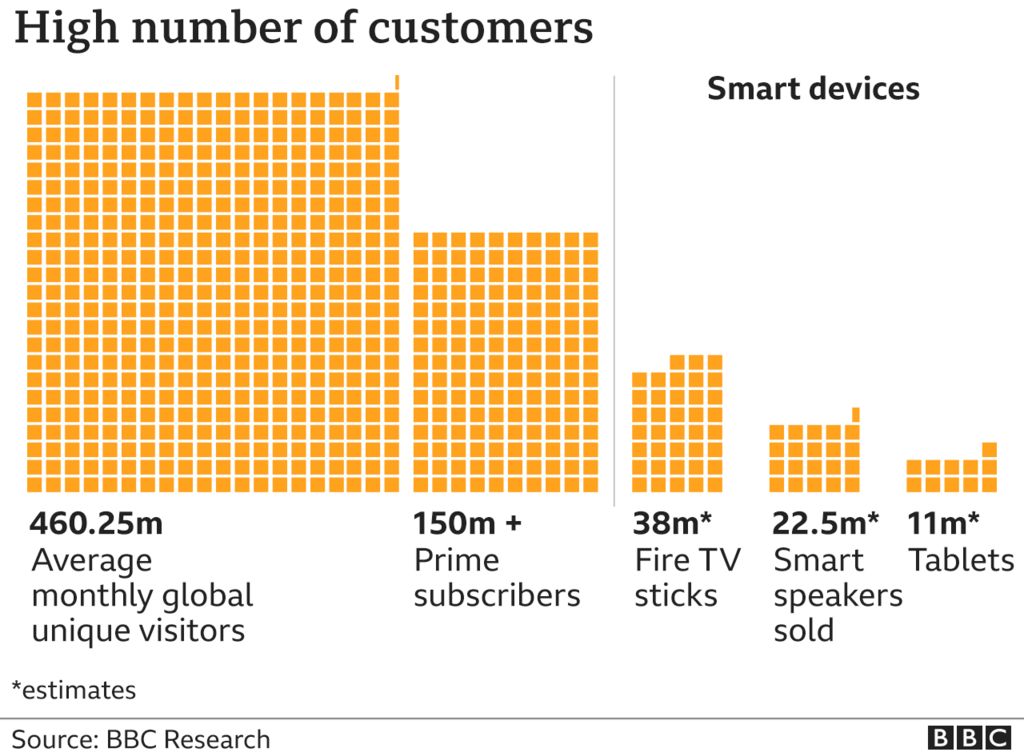
Amazon Prime was launched in 2005, offering quicker shipping for selected items. This boosted sales of all sorts of goods.
More than 100 million paying customers are now members of subscription service Amazon Prime, which also offers video and music streaming.
It is the second-largest paid membership programme in the world.
2007- Amazon launches its first consumer product: The Kindle
Amazon never forgot its bookselling origins. When ebooks started to become popular, Mr Bezos launched the Kindle in 2007, eventually becoming the global leader in the sector.
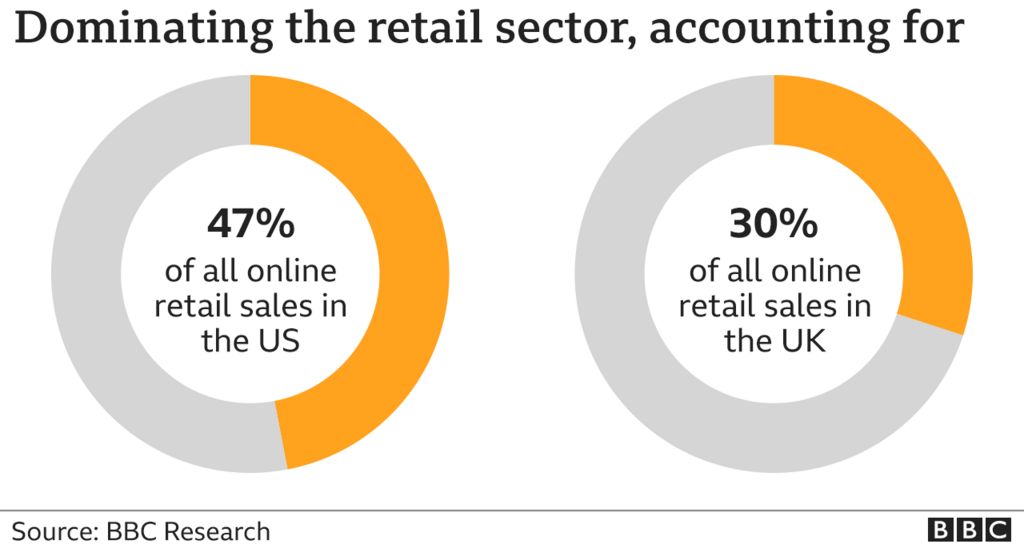
The Amazon smart devices department grew exponentially, facing fierce competition from Apple and Google in the early 2010s.
Amazon, however, was the first company to launch a smart device: the Echo speaker, equipped with the firm's own artificial intelligence system, Alexa.
It is now the third-largest seller of smart devices in the US.
Today, the future of Amazon looks a bit more complicated than just selling products on the internet.
Having successfully dominated online retail, the firm has now set its sights on expanding its services - and perhaps surprisingly, into physical stores - to create a new way of shopping.
https://ift.tt/3pXAmwI
Business
Bagikan Berita Ini














0 Response to "Amazon after Bezos: The company that Jeff built - BBC News"
Post a Comment